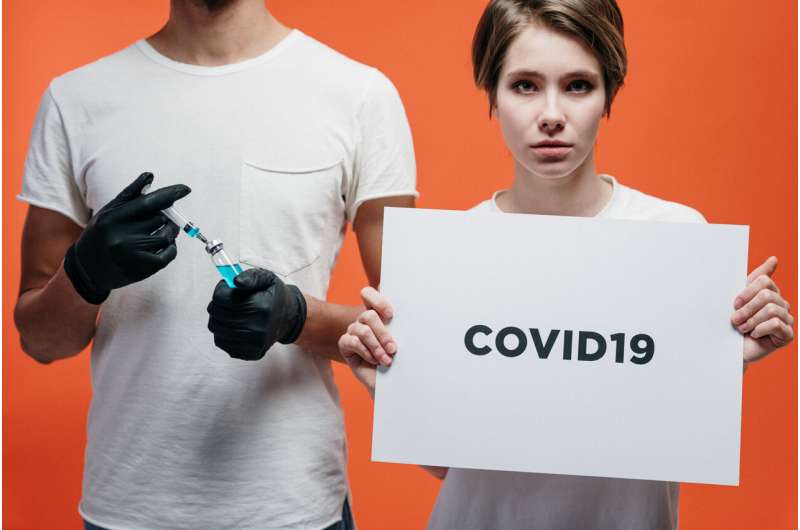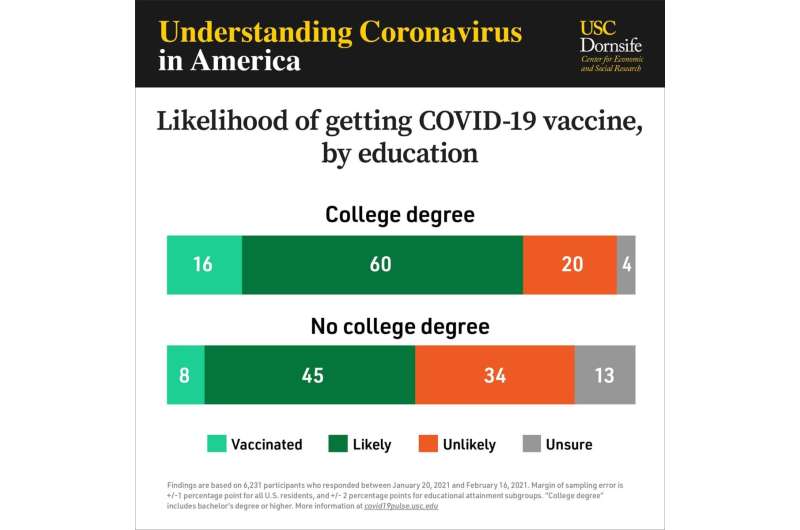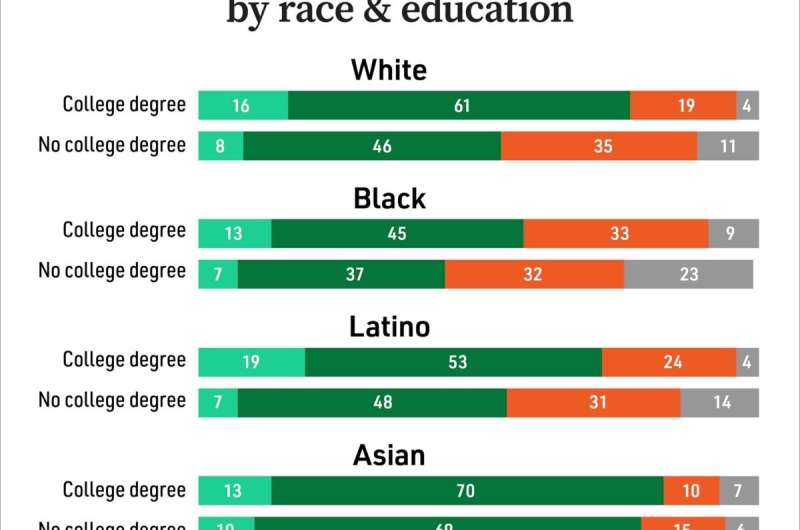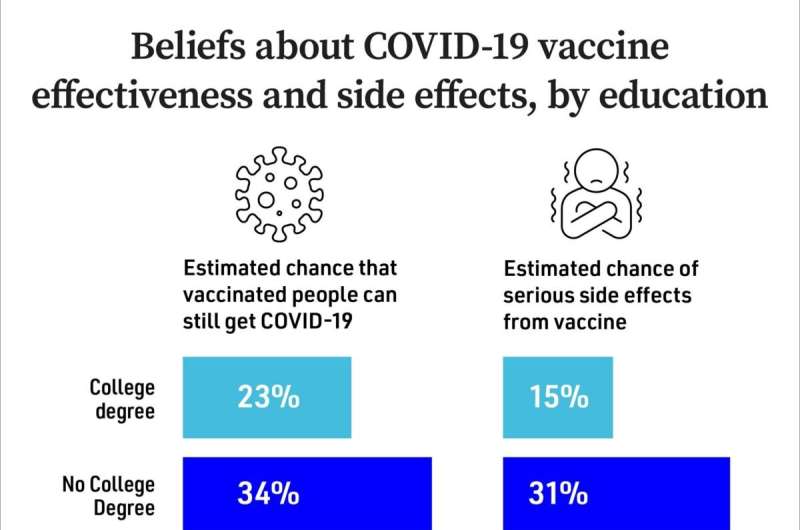Credit: cottonbro studio from Pexels
New findings from the Understanding Coronavirus in America survey reveal that when it comes to attitudes and beliefs about the COVID-19 vaccine—from willingness to get the vaccine to knowing someone who has been vaccinated to the perceived risks of side effects—there is a substantial gap between more- and less-educated U.S. residents.
Researchers with the Center for Economic and Social Research (CESR) at the USC Dornsife College of Letters, Arts and Sciences found that more than three out of four (76%) U.S. adults with at least a bachelor's degree have already been vaccinated or plan to be, compared to just over half (53%) of those without a college degree. That's a change from earlier in the pandemic, when level of education played less of a role in people's willingness to get a COVID-19 vaccine.
"Results of our surveys earlier in the COVID-19 pandemic—before vaccines were approved—indicated that race and ethnicity would play a greater role than education level in people's willingness to get the vaccine," said Jill Darling, survey director for CESR's Understanding America Study. "But one year into this pandemic, with vaccines now being rolled out across the U.S., education level has become a greater factor than race."
Credit: University of Southern California
Racial differences in vaccine hesitancy persist
While gaps between college-educated and non-college-educated U.S. residents are found across racial and ethnic groups, some differences in willingness to get a COVID-19 vaccination persist.
- The share of adults without a college degree who say they are unlikely to get vaccinated is about the same among Black and white people—32% and 35%, respectively. But the share of adults without a college degree who are not sure about their likelihood of getting vaccinated is much higher among Blacks (23%) than whites (11%).
- There's only a small gap in willingness to get the vaccine between Asian Americans with and without a college degree.
"What we find driving the educational differences, along with racial and ethnic differences, in vaccine hesitancy is lack of trust in the vaccine development and approval process," said Kyla Thomas, a CESR sociologist. "Our findings indicate that, in addition to tailoring vaccine awareness campaigns to high-risk groups, policymakers should emphasize the safety and effectiveness of COVID-19 vaccines particularly to those without college degrees. Trust is the big story here: Policymakers need to build trust among less-educated Americans."
Credit: University of Southern California
Education level plays a role in underestimating effectiveness, overestimating risks of COVID-19 vaccine
On a range of measures related to vaccine experiences and attitudes, including assessing both effectiveness and the risk of serious side effects, people's level of education plays a large role. U.S. adults with at least a bachelor's degree view the vaccine as much safer and more effective than those with less education.
- Overall, U.S. adults believe there is a 30% chance, on average, that someone who has been vaccinated will still get COVID-19 and a 26% chance of serious side effects from the vaccine.
- People with a college degree believe there is a 23% chance that a vaccinated person will still get COVID-19, while those with less education believe there is a 34% chance.
- Similarly, people with a college degree believe there is about a 15% chance for a serious side effect from the vaccine, while those with less education estimate the risk to be twice as high, at 31%.
Credit: University of Southern California
U.S. adults with college degrees are also more likely to personally know someone who has been vaccinated.
- Fifty-four percent of U.S. adults overall know a friend or family member who has been vaccinated, but U.S. adults with a bachelor's degree or higher are much more likely to know someone who has been vaccinated (69%), compared to those without a college degree (46%).
- Seventy-four percent of college-educated Latino people know someone who has been vaccinated, compared to 46% of Latinos with less education.
- Fifty-five percent of Black people with a bachelor's degree or higher know someone who has been vaccinated, compared to 41% of those with less education.
"Moving forward, we have to work closely with information and communication channels people trust, like celebrities and leaders from the community and faith-based organizations," said Jeffrey Klausner, professor of preventive medicine at Keck School of Medicine of USC and a research scientist at the COVID-19 Pandemic Research Center.
Provided by University of Southern California



























